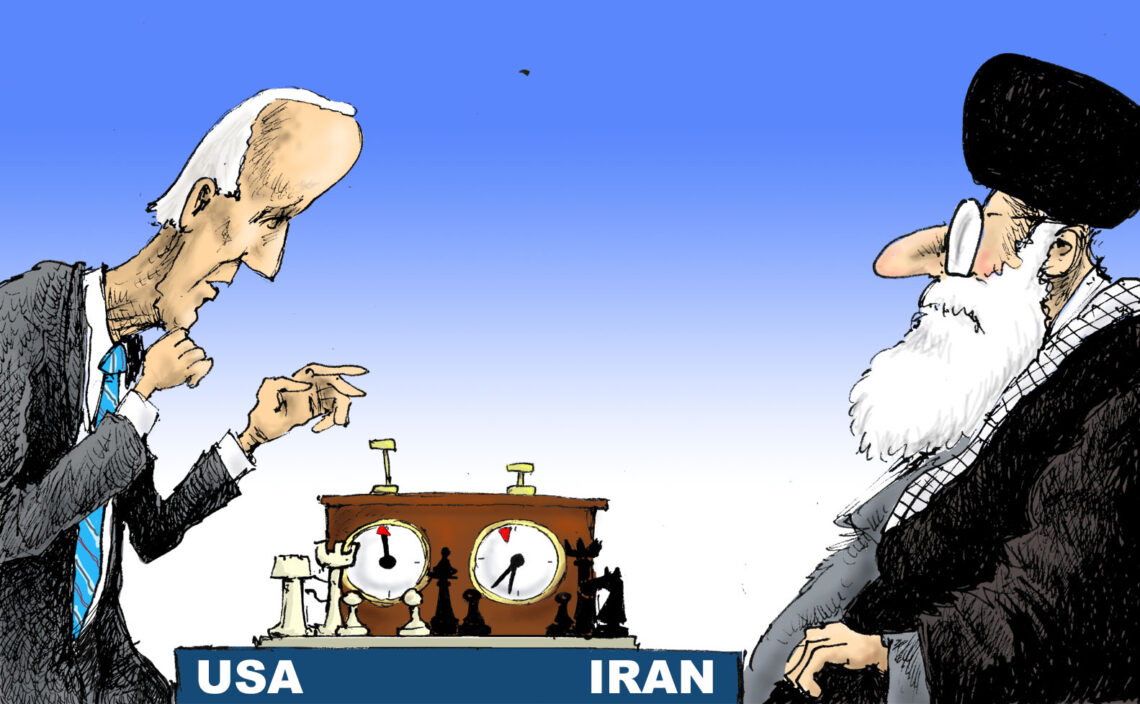Adding fuel to the fire in the Middle East
The 2015 nuclear agreement with Iran failed to address Tehran’s disruptive interventions in the Middle East. A new round of negotiations with Iran has begun, but without a sound strategy, Western powers could once again conclude a problematic, hurried deal.

Washington and Tehran announced on April 2 that they intend to hold indirect talks in Austria, set to begin on April 6. The shuttle-diplomacy negotiations will be brokered by the European Union, with the American and Iranian delegations in different locations in Vienna. The purpose is to revive the nuclear deal concluded in 2015 under the Obama administration. President Donald Trump had canceled the agreement because it did not demand that Iran stop supporting terrorist activities abroad or inciting unrest in countries like Yemen, Iraq and Lebanon. Also, the 2015 deal had not definitively halted the development of the Iranian nuclear program, but merely delayed it.
European powers have turned a blind eye to Iran’s brutality and subversion for several reasons, including short-term commercial interests, but also because of a principalist attitude toward Saudi Arabia. The Biden administration was also eager to resume talks. Iran refused to take part in direct negotiations, probably assuming that showing reluctance would improve its bargaining power. And Tehran might be right – according to Reuters, an EU official who will coordinate the talks declared that an agreement should be reached in the next two months.
Negotiations are always good as long as the objectives are clear.
Negotiating under pressure is always unfavorable for the party setting the time limit, in this case, the EU and the United States. On Easter Sunday, two rockets were launched at an Iraqi base housing American soldiers. No lives were lost in the incident, but this was the fourteenth assault by Iranian-backed terrorists on U.S. installations since President Biden took office three months ago. This shows Tehran is unwilling to put an end to its disruptive activities. Still, a spokesperson of the U.S. government called the talks a “healthy step forward.”
Negotiations are always good as long as the objectives are clear. But the 2015 deal was concluded without including any of the concerned parties in the Middle East, neglecting their legitimate interests. It allowed Iran to pursue its catastrophic push for regional hegemony, which led to the humanitarian disaster in Yemen, the economic and political crisis that caused utter misery for many in Lebanon and continuing terror attacks in Iraq. Israel, the United Arab Emirates and Saudi Arabia are also directly threatened by Tehran’s ambitions.
An ideal deal would make Iran stop its terrorist and subversive activities, and renounce developing nuclear weapons entirely. But this is impossible in the short term. We can only hope that Washington will remain firm, but it seems unlikely that Tehran will comply. It is also alarming that European officials mentioned a two-month time frame. This might also indicate that Washington is considering a bargain under time pressure once again.
The hostile government in Tehran is making a bad situation worse.
The Middle East is a fragmented region. Its current borders were arbitrarily designed by Britain and France in the 1916 Sykes-Picot Agreement. The British and French diplomats Mark Sykes and Francois Georges-Picot divided the territories of the Ottoman Empire, creating the British dependencies of Palestine and Iraq and the French territories of Syria and Lebanon, against the wishes of the local Arab population. Today’s artificial states, including the military quagmire in Iraq and Syria’s devastating decade of war, are the long-term results of London and Paris’ shortsighted policies.
The hostile government in Tehran is making a bad situation worse. By adding fuel to the fire, Iran makes regional peace impossible.
Sanctions are seldom the best strategy but, given the lack of alternatives, it could be the best way to deal with Tehran, which has no intention of allowing peace in the region. Unfortunately, there are no common grounds that would justify an agreement. It can only be hoped that the current negotiation process will not end with the Iranian regime in a stronger position.
